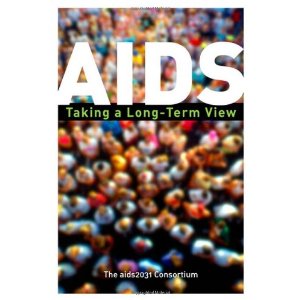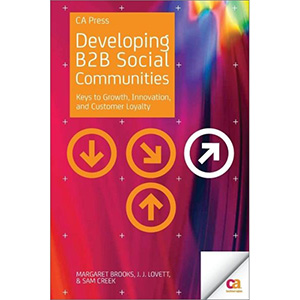AIDS: Taking a Long-Term View

In this highly readable book, the Aids2031 Commission’s experts report on AIDS’ first 50 years: the 30 years since first diagnosis, emerging trends, and how to create better outcomes between now and 2031. They address all facets of AIDS: science, public health, funding, treatments, social and societal impacts, and more.
From the Back Cover
The definitive report on the AIDS pandemic: where it stands, where it’s headed, what we’ve learned, and the choices we face
Over 25 million people have died from AIDS, and more than 33 million are living with HIV today. While treatments have moved AIDS from a fatal to a chronic disease, it remains the sixth greatest cause of death globally–and many of those infected in the poorest countries don’t have access to treatments. In short, AIDS is a continuing worldwide health crisis.
In this book, the aids2031 Consortium’s experts examine the first 30 years of the AIDS response and propose options for the future, focusing on what needs to be done differently now to change the face of AIDS by 2031, which will mark 50 years since AIDS was first reported.
They address the full scope of the pandemic: basic science, public health, funding, treatment options, and social and societal impacts. Then, they review the full spectrum of possible responses over the next two decades, carefully assess progress, and discuss both persistent and emerging challenges.
Written to be easily understandable by all readers, this book is the single best source of reliable information on where the AIDS pandemic stands today, where it’s headed, and what can be done to create better outcomes between now and 2031.
- The future of AIDS
What has been accomplished and what remains to be done - Generating new knowledge and using it more effectively
Focusing scientific research and efficiently applying what it yields - Planning for more effective prevention
Creating programs that work better and offer greater local ownership - Financing AIDS programs for the next generation
Overcoming donor fatigue and other challenges - Authoritative, complete, up-to-date, and accessible
- Covers scientific advances, treatment options, public health, funding, and directions for progress
- For policymakers, researchers, health professionals, stakeholders, and citizens
The world is approaching a moment of truth. Over the past 30 years, the worldwide mobilization against AIDS has generated historic achievements and prevented millions of deaths. Yet ominous signs suggest that the AIDS response is beginning to fracture.
The global community has repeatedly mobilized to address global health crises only to lose interest prematurely, with catastrophic impact. Will this tragic story be repeated with AIDS? Or will decision-makers chart a healthier, more enlightened course?
In this book, the aids2031 Consortium, a worldwide group of experts, examines the possible future of AIDS, the factors likely to determine its course, and the steps needed to sharply reduce new infections and deaths. It identifies successful strategies that can be strengthened, as well as changes needed to respond more effectively and sustainably.
Review
“This book presents a compelling argument by the aids2031 Consortium, showing why the international community must adopt a long-term view of the AIDS pandemic. It reminds us that our actions today are crucial to the survival of millions tomorrow.”
–Kofi A. Annan, Former United Nations Secretary-General
“In the coming years, we need to accelerate our efforts to change the global picture of HIV so that women and children will no longer be vulnerable to HIV infection and will no longer die prematurely of a preventable and manageable disease. This requires leadership, resources for health, social mobilization on prevention, and respect for human rights.”
–Vuyiseka Dubula, General Secretary, Treatment Action Campaign (TAC)
“This important book outlines the challenges and opportunities before us as the AIDS epidemic–and our global response–turns 30. aids2031 gives us a roadmap for the next two decades: By addressing the social and economic forces driving the AIDS epidemic, we can attack both the disease and the root causes of the poverty that is its close companion.”
–Paul Farmer, Chair, Department of Global Health and Social Medicine, Harvard Medical School, and Co-founder, Partners in Health
Book Details
- Hardcover: 224 pages
- Publisher: FT Press (December, 2010)
- Language: English
- ISBN-10: 0132172593
- ISBN-13: 978-0132172592














